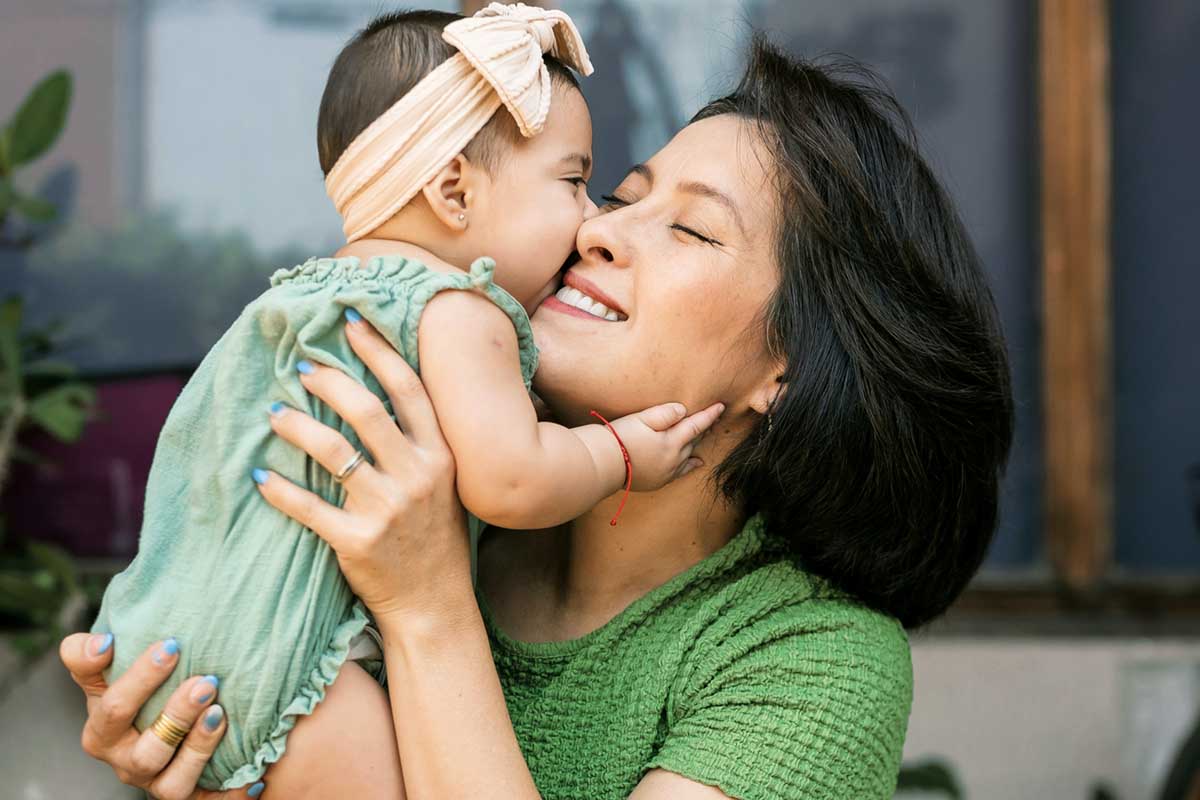Advertisement
Can I Still Have a Baby?
A healthy pregnancy after cancer

It’s a heart-wrenching question that young women cancer survivors often ask themselves: is it safe for me to have a baby? More often than not, the answer is yes. Natural treatments can help women conceive after cancer, but many factors need to be considered before being given the go-ahead.
Putting plans on hold
A cancer diagnosis that stalls plans for a family can be a frightening experience for young couples. Discussions of names and nursery themes give way to doctors’ appointments and endless tests. The most common cancers in women of child-bearing age are breast, cervical, melanoma, lymphoma, and acute leukemia. And let’s not forget about the guys. Every year, 1,000 Canadian men are diagnosed with testicular cancer.
Effects of chemotherapy
Chemotherapy takes a toll on the body and is a great concern when planning a pregnancy. Periods can become irregular or halt completely during treatment, and if the ovaries become damaged by chemotherapy, temporary or even permanent infertility can result. Plus, women who wait until they’re older to start a family have a greater chance of experiencing menopause while undergoing chemotherapy.
Craig Herrington, ND, at the Ottawa Integrative Cancer Centre, says there are a number of factors that need to be taken into consideration when treating young women who are undergoing chemotherapy treatments. “Breast cancer is the most common cancer I see in women of child-bearing age, and while chemotherapy can affect their eggs, there is still a lot we can do to help preserve fertility.”
His suggestions include refraining from smoking, maintaining an optimal weight, cutting excess caffeine, and introducing certain flavonoids into the diet. “We also suggest pomegranate to help increase uterine blood flow and acupuncture treatments to help the body function more efficiently,” he says.
Preparing for baby
Plans to start a family may have to wait anywhere from six months to five years after cancer treatment. Women suffering from breast cancer especially may be prescribed hormone therapy for up to 10 years after treatment.
“One of our goals at the Ottawa Integrative Cancer Centre is to work in conjunction with conventional doctors to develop a course of treatment that is right for that particular patient,” says Herrington.
Many young cancer patients have reservations about accepting drug therapies, but there are ways natural medicine can help manage the side effects and prepare the body for pregnancy. Herrington points out that flaxseeds contain lignans, which can have anti-estrogen effects on the body when consumed in larger amounts. Melatonin prescribed in doses 10 to 20 times higher than what would be used for sleep can reduce binding at estrogen receptor sites.
Getting the go-ahead
A clean bill of health at the end of a long course of cancer treatment is cause for celebration, especially when it means plans to start a family can finally be put into motion. And even though there may be no cause for concern medically, there are sometimes nagging questions at the back of a cancer survivor’s mind, especially when it comes to passing the disease on to her offspring.
Current research shows that only 5 to 10 percent of cancers have a genetic component that can pass from parent to child. Women may also question if being pregnant could cause a recurrence, especially in the case of breast cancer and fluctuating hormones during pregnancy. But there’s little cause for worry. Studies so far show that survival rates in women who become pregnant after breast cancer are as good as women who do not.
Rules for preparing the body for pregnancy are the same for women who have battled cancer and those who haven’t. A healthy, sensible diet, a regular exercise regimen, stress reduction practices, and a supplement plan developed in conjunction with a registered naturopath can all help increase a woman’s fertility chances.
Fertility-boosting foods
Taking a daily prenatal vitamin with at least 400 mcg of folic acid is key, in addition to the following.
Enjoy healthy fats
Avoid trans fats found in partially hydrogenated oils, which have been linked with an increased risk of infertility. Instead, consume healthy fats from vegetable oils, nuts, seeds, and cold-water fish such as salmon and sardines. The Mediterranean diet is a well-researched plan to follow.
Pick vegetable protein
Reduce meat and increase your intake of beans, peas, and soybeans or tofu. Research conducted at the Delaware Institute for Reproductive Medicine suggests that women increase their protein intake to 25 to 30 percent of their total diet and keep carbohydrate consumption at around 40 percent for better quality embryos and eggs.
Increase your B vitamins
Whether you choose a supplement or sources from Mother Nature, getting a full range of B vitamins is key. Leafy greens such as spinach, parsley, and kale; whole grains such as oatmeal, quinoa, and brown rice; and proteins such as eggs and shellfish can provide a good cross-section of B’s.
Stick with slow carbs
Regulate blood sugar and insulin levels with slowly digested carbohydrates that are rich in fibre. Whole grains, vegetables, fruits, and beans all help support conditions conducive to conceiving.
Opt for whole milk
An occasional bowl of ice cream is okay. Studies show that whole milk rather than skim promotes fertility. A serving of full-fat yogurt will also do the trick.
Choose iron from natural sources
Whole grain cereals, tomatoes, spinach, beans, and pumpkin are all good plant-based sources of iron, a mineral key in promoting ideal conditions for conception.
Say no to soda
Water is best when you’re trying to conceive. Small amounts of coffee and tea are allowed, but pass on the sugared sodas, which have been shown to promote ovulatory infertility.




